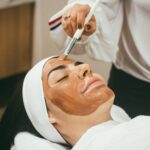The UK is set to introduce new legislation to set standards for non-surgical cosmetic treatments, including Botox after a sharp rise in ‘botched’ procedures.
Under the proposed initiative, people administering Botox or Dermal fillers will be legally required to have a license to safeguard consumers against rogue practitioners after an ‘unacceptable’ rise in complaints.
Currently, whilst only licensed medical professionals can legally prescribe Botox, there is no regulations in place on who can administer non-surgical procedures, leaving patients open to risk of complication.
Whilst it has been recognised that most people and premises within the aesthetics Industry do follow good practice to keep patients safe, there has been a sharp rise in complaints of ‘botched’ procedures leaving patients with visible scars.
UK Health Secretary, Sajid Javid says “far too many people have been left emotionally and physically scarred when things have gone wrong. It’s time to think about the harm botched cosmetic procedures can have.”
“We’re doing all we can to protect patients from potential harm, but I urge anyone considering a cosmetic procedure to take the time to think about the impact on both their physical and mental health and ensure they are using a reputable, safe and qualified practitioner.”
Maria Caulfield, the minister for patient safety, says social media has undoubtedly led to a rise in demand for Botox and dermal filler procedures, and there had been a subsequent increase in patients suffering the consequences of badly performed procedures.
Speaking exclusively to The Harley Street Journal, Antonia Mariconda, Founder of Safety in Beauty, a UK organization founded to raise awareness of unsafe activities within aesthetics says:
“There has been a significant rise in patient complaints following unsafe non-surgical procedures. It is important to understand the dangers of unsafe practices when it comes to injectable treatments. If not done correctly, the consequences can cause scarring, permanent disfigurement, paralysis, and even death.
I urge patients considering any sort of cosmetic procedure to seek a board-certified dermatologist or plastic surgeon to minimize the risk of complications. Adverse side effects are less likely to occur if injections are prepared and injected by an experienced practitioner.”
This new legislation will also lay out consistent hygiene and safety standards for premises administering non-surgical procedures.
The Department of Health and Social Care said the amendment to the health and care bill, is due to be tabled today (1st March) and would give UK Health Secretary the power to introduce new regulations and a legal licensing requirement for these procedures.
The move follows the introduction of the Botulinum Toxin and Cosmetic Fillers (Children) Act, which was enforced in the UK last October to ban those under the 18 from receiving Botox and dermal lip-fillers for cosmetic reasons. There is also a ban on procedure advertisements, including social media and influencers to safeguard youngsters.
Further details on the public consultation on non-surgical cosmetic procedures will be set out at a later date.
















